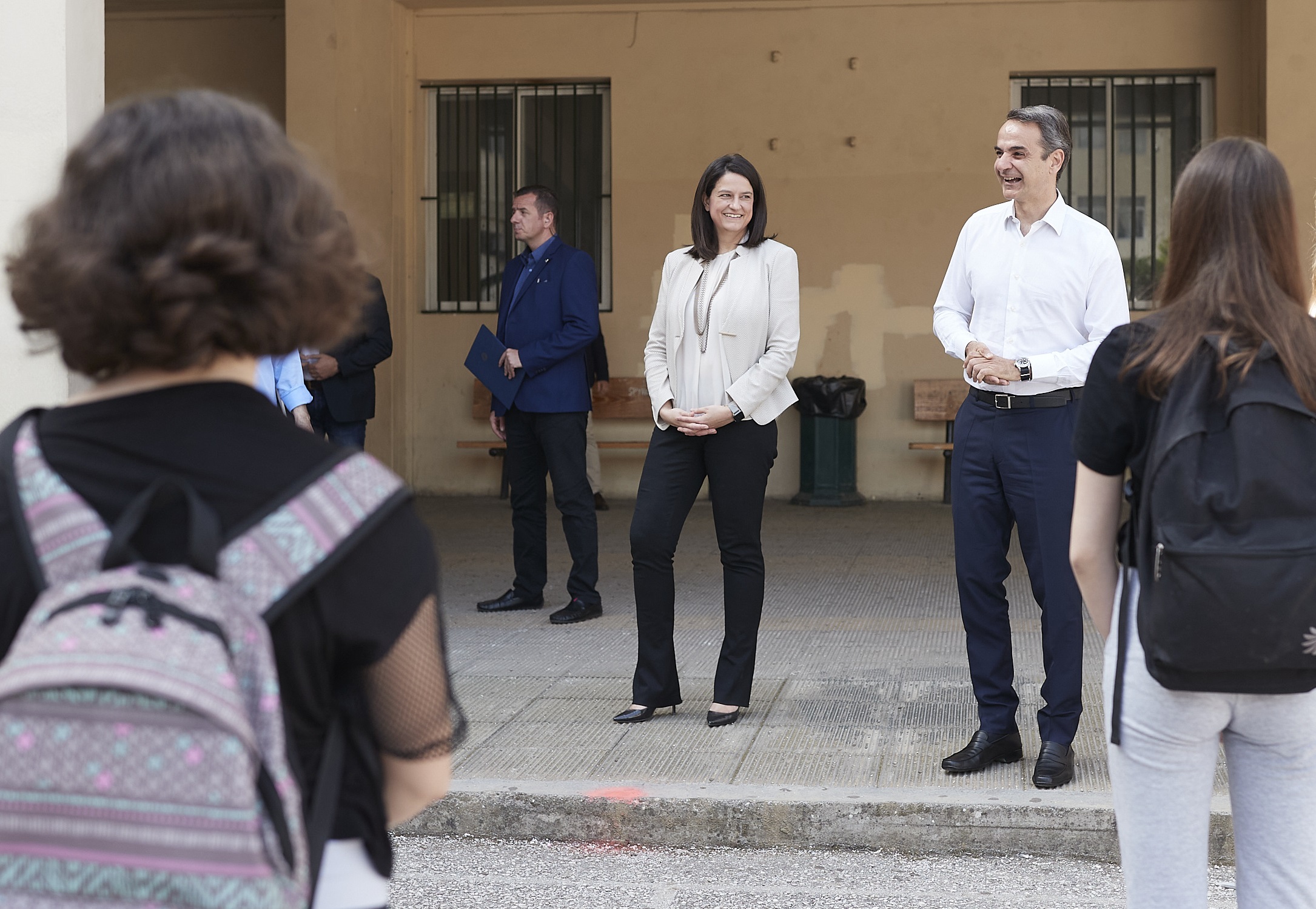
Interview of the Minister of Education and Religious Affairs Niki Kerameos to the magazine Grtraveller and Antonis Kyrikos
The Minister of Education and Religious Affairs, Mrs. Niki Kerameos in an interview with grtraveller.
Madam Minister, did you participate in the highly important trip of Prime Minister Mr. Kyriakos Mitsotakis in the USA. What are the conclusions in the field of education? Has Greece entered the international academic map?
I had the honour to be part of the government delegation on a historic visit with excellent results for our country. Prime Minister Kyriakos Mitsotakis raised all the issues of interest to Greece, while, at the same time, he presented our position on critical geostrategic issues. As a member of the Government, I participated in discussions that led to the expansion of the already close cooperation between the United States and Greece on defense, energy, geostrategic, economic and educational levels. During my stay in Washington, D.C., I had a series of contacts to further strengthen cooperation between Greek and American universities.
Among other things, I met with representatives of more than 20 American universities, which have already launched or are launching new partnerships with our universities, in the framework of the cooperation programme we launched in 2019. In the last three years Greece has entered the international academic map: collaborations with leading institutions in the European Union, the USA, the United Kingdom, China and other countries have already been established and are underway. Greece came out of this visit stronger, with even greater credibility in the United States and the world at large, with even stronger partnerships in the field of education.
How can the extroversion of Greek universities be developed and become a pole of attraction for foreign students?
The extroversion of our education system is one of our top goals in Education, and since the beginning of our mandate we have taken substantial steps towards achieving this, by adopting a flexible legislative framework, by securing important financial tools and by implementing strategic cooperation programmes with leading universities of the world. What form do these partnerships take? Creation of dual and joint study programmes between Greek and foreign universities, establishment of foreign language study programmes and summer programmes, exchange of students, professors, researchers, creation of joint research centres and participation in joint research projects, etc.
A new bill is just around the corner
which aims to give new horizons
in our Universities’
For example, the summer courses of the EKPA-Harvard collaboration in Migration and Refugee Studies will start this summer, the Centre of Excellence for Environmental Science and Public Health from the Universities of Athens and Yale is already underway, a research project on combating Alzheimer’s disease from Ionian University, Johns Hopkins and the University of Texas. Our vision is for Greece to become a world-class educational centre that attracts students, teachers and researchers from all over the world. An education system that not only produces excellent scientists but also attracts them.

What are the most important reforms made during your tenure at the Ministry of Education?
Over the last three years, and despite the difficult conditions of the pandemic, we have laid the foundations for the Education of the Future. We have made cuts at all levels of our education system, from the bottom up. Among other things, we implemented the start of pre-school education from four years (instead of five years), the teaching of English from Kindergarten, the inclusion of skills workshops in the compulsory timetable of all schools in the country. We have moved on to 16.200 appointments of permanent teachers after 12 years without a single one, doubled the number of Standard and Experimental Schools, introduced and implemented evaluation at all levels of education, modernized textbooks and curricula, upgraded Vocational Education and Training based on the real needs of society and the market, giving outlets to our young people, strengthened our Universities with a view to providing high quality studies and enhancing the academic environment, favouring the development of new and innovative technologies, and improved the quality of education. We have established the Minimum Admission Base so that no one can be admitted to university with very low scores, and we have ensured that funding for universities will be allocated according to objective criteria and not by arbitrary ministerial decision, as was the case until now. A new bill is on the horizon which aims to give new horizons to our Universities, with possibilities such as internal “Erasmus” for our students, joint and double degrees, student start-ups, new meritocratic procedures for the election of professors, industrial doctorates. Education is changing in practice. It becomes modern, flexible, inclusive, outward-looking, enriched with digital tools. This is the education our children deserve, for their present and their future.
What is your favourite habit that relaxes you after a long day?
The game with my children. A night out with my husband, for dinner and conversation. A coffee with my friends. A nice book, an interesting film or theatre performance that calms me down and takes me on a journey.
Your favourite destination in Greece?
I love our islands, which I consider an ideal summer destination! A special place for me is Sifnos, which I have been visiting since I was a child and from which I have many pleasant memories with my husband and our children.















